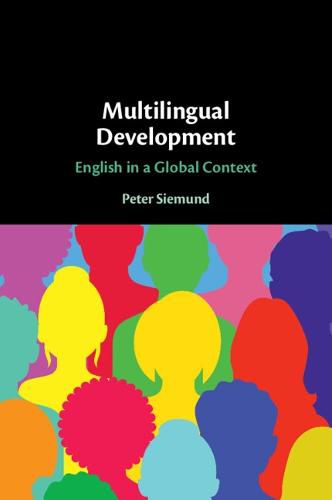Readings Newsletter
Become a Readings Member to make your shopping experience even easier.
Sign in or sign up for free!
You’re not far away from qualifying for FREE standard shipping within Australia
You’ve qualified for FREE standard shipping within Australia
The cart is loading…






English as a global lingua franca interacts with other languages across a wide range of multilingual contexts. Combining insights from linguistics, education studies, and psychology, this book addresses the role of English within the current linguistic dynamics of globalization. It takes Singapore, Hong Kong, and Dubai as case studies to illustrate the use of English in different multilingual urban areas, arguing that these are places where competing historical assessments, and ideological conceptions of monolingualism and multilingualism, are being acted out most forcefully. It critically appraises the controversial concept of multilingual advantages, and studies multilingual cross-linguistic influence in relation to learning English in bilingual heritage contexts. It also scrutinises multilingual language policies in their impact on attitudes, identities, and investment into languages. Engaging and accessible, it is essential reading for academic researchers and advanced students of bi- and multilingualism, globalization, linguistic diversity, World Englishes, sociolinguistics, and second/third language acquisition.
$9.00 standard shipping within Australia
FREE standard shipping within Australia for orders over $100.00
Express & International shipping calculated at checkout
English as a global lingua franca interacts with other languages across a wide range of multilingual contexts. Combining insights from linguistics, education studies, and psychology, this book addresses the role of English within the current linguistic dynamics of globalization. It takes Singapore, Hong Kong, and Dubai as case studies to illustrate the use of English in different multilingual urban areas, arguing that these are places where competing historical assessments, and ideological conceptions of monolingualism and multilingualism, are being acted out most forcefully. It critically appraises the controversial concept of multilingual advantages, and studies multilingual cross-linguistic influence in relation to learning English in bilingual heritage contexts. It also scrutinises multilingual language policies in their impact on attitudes, identities, and investment into languages. Engaging and accessible, it is essential reading for academic researchers and advanced students of bi- and multilingualism, globalization, linguistic diversity, World Englishes, sociolinguistics, and second/third language acquisition.